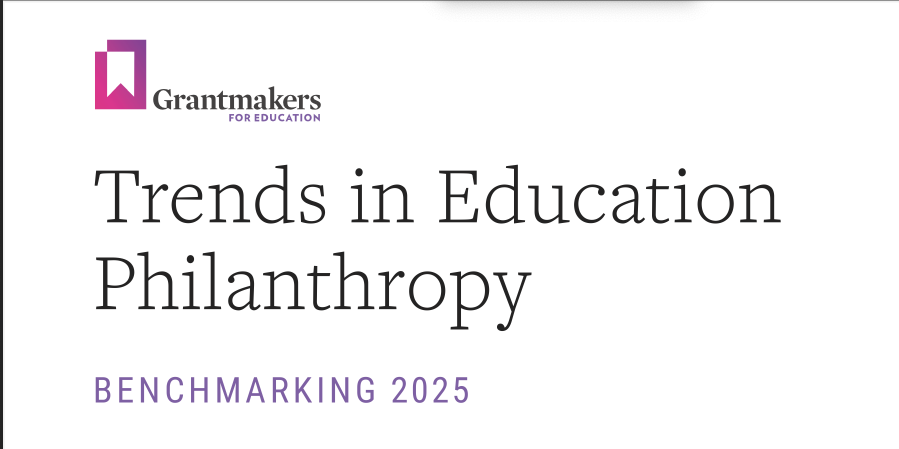This framework for measuring the impact of systems on getting better, more equitable results for youth and families, addresses cradle-to-career indicators as well as adjacent sector indicators.
Resources
Knowledge begins here
but never ends.
Curated reports, deep research, informational articles, podcasts. Everything you need to stay well
informed in the world of education grantmaking.
Trends in Education Philanthropy: Benchmarking 2025

Our Trends in Education Philanthropy: Benchmarking report, based on the latest survey of education grantmakers, offers insights into where and how funders are working and their evolving priorities.
2025 Annual Conference & 30th Anniversary Sponsorship
Celebrating 30 Years of Grantmakers for Education
.
FILTER RESOURCES
SEARCH RESOURCES
A Guide to Racial and Ethnic Equity Systems Indicators
2021 Kids Count Data Book
The 32nd edition of the Annie E. Casey Foundation's KIDS COUNT®️ Data Book describes how children across the United States were faring before — and during — the coronavirus pandemic.
Can critical race theory and patriotism coexist in classrooms?
Aligning Financial Sustainability with Student Access and Success: Opportunities for Private Colleges
This report highlights long-term academic and financial opportunities for small colleges by attracting and retaining those students who face the highest barriers to enrollment and completion.
Private nonprofit colleges that are smaller, less competitive, tuition-dependent, and/or have relatively low endowments are consistently identified as the most financially vulnerable, even more so during a pandemic. Yet researchers found that these schools can turn around their fiscal performance by reframing service to students with the most challenges–those from low-income households, who are first-generation and/ or are people of color–as an opportunity, rather than a challenge.
Demographic portrait of grantees: What we’re learning and doing to support inclusion and improve our practices
Equitable Value: Promoting Economic Mobility and Social Justice through Postsecondary Education
The push to improve postsecondary education as a path to opportunity has evolved over the past generation – from a focus on expanding access to expanding access and success and making both more equitable. Now is the time to extend that focus to include value – the returns to students and society.
The Postsecondary Value Commission has tapped newly available data and insights to propose a new approach for measuring the value of education after high school and to recommend actions that college and university leaders, state and federal policymakers, and students and families can take to improve those returns and make them more equitable.
Submit A Resource
Expand your audience by expanding minds.
We believe in getting research and insights into more hands to support learning for our peers and community. Share your resources that would be useful to education grantmakers.






